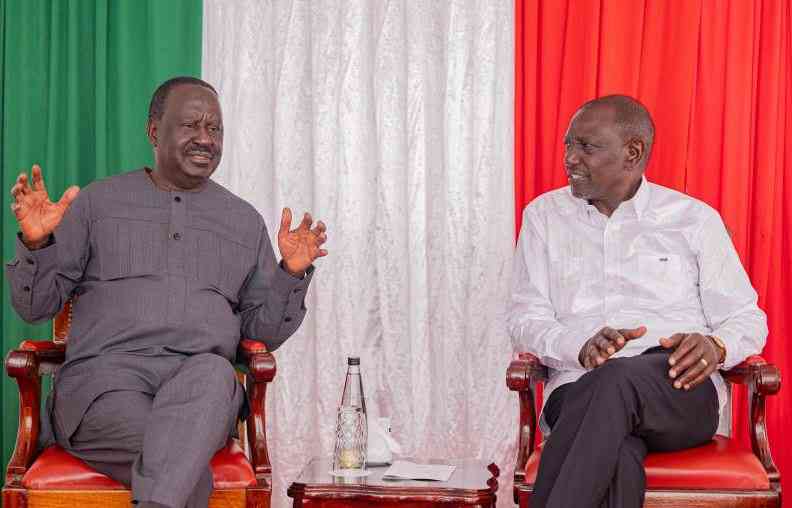The persistent clamour for “dialogue” in Kenya has become a tired refrain. What exactly is so profound about endless dialogue in a setting where the challenges and solutions are so glaring and obvious?
If dialogue is indeed the answer, then surely, the first item on the agenda should be “matters arising”—a stark confrontation with the unfulfilled promises and inconsistencies from previous sit-downs. All too often, these dialogues serve fleeting interests of the moment, not well-being of the nation.
Consider President William Ruto’s swift action in shelving the Finance Bill 2024, a move widely seen as a victory for the people. Alongside this, he pledged various measures to soothe public discomfort. We were told of a ban on public officials participating in Harambees – a well-intentioned idea. Isn’t it even worse now? The figures have actually been pushed higher.
The President also committed to trimming his advisory team and cutting budgets for institutions like State House and the spouses’ offices. Yet, public consensus is these promises remain largely unfulfilled. The lavish spending continues. Then there was the much-touted Cabinet reshuffle, ostensibly to rid the government of non-performing and arrogant ministers. In reality, little changed. A good number were recycled into the same Cabinet and few others resurfaced in other significant roles regardless of their alleged incompetence and undeniable arrogance.
This cycle of musical chairs does little to inspire confidence. The same spirit of arrogance that pushed young people to the streets has been taken a notch higher. Now, they brazenly encourage police to use firearms in ways that contradict their training.
The repeated calls for dialogue, often championed by figures like ODM party leader Raila Odinga, have largely failed to deliver tangible, lasting benefits. They have not served a purpose for thousands of Raila supporters victimised for his sake.
Do we truly need “dialogue” to uphold the Constitution, allow peaceful protests, or ensure officers responsible for extrajudicial killings face justice? Absolutely not. Basic humanity demands we address the grief of mothers, fathers, wives, and husbands who have buried their loved ones due to state-sanctioned violence. This does not require a formal discussion; it requires immediate, decisive action and accountability.
The 10-point plan that gave way to the broad-based government between President Ruto and Raila now seems like a distant memory and has failed to translate into meaningful shift of direction for the nation.
Many of our current challenges stem from a government that has become increasingly defensive, even when confronted with proposals that could genuinely enhance its efficiency and success. Any achievements President Ruto believes he has made will ultimately mean nothing if the primary beneficiaries are not ordinary citizens.
The stark reality is, they are not. Kenyans express this truth every day. This widespread discontent, this profound sense of being left behind, is more than enough information for action. It’s time to move beyond the endless rhetoric of dialogue and embrace decisive governance.
[email protected]
By Mike Nyagwoka


